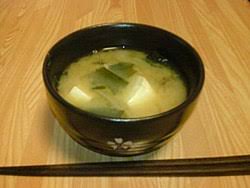
Excerpts from “The Miso Book” by John & Jan Belleme
Touted for centuries as a folk remedy for weak digestion, cancer, radiation sickness, tobacco poisoning, acidic conditions, low libido, and intestinal infections, miso’s reputation as one of nature’s most healing foods has been confirmed by modem medical science. These studies show what folk healers have known for centuries. It is not any one particular component of miso that makes it such an effective healing food, but rather a complex combination of ingredients and a unique double fermentation process that transforms soybeans and grains into a potent medicine. Although miso can now be found in most natural food stores and is an important ingredient in natural food cookbooks, it is still greatly underrated as a medicinal food.
- Miso Helps Protect the Body Against Atomic Radiation and Heavy Metal Poisoning
Researchers have discovered that miso contains dipilocolonic acid, an alkaloid that chelates heavy metals, such as radioactive strontium, and discharges them from the body.
- Early Population Studies Show Miso is a Potent Medicine
A study of over a quarter of a million Japanese men and women showed that those who ate miso soup every day had fewer cases of certain types of cancer.
- Isoflavones: The Silver Bullet in Soyfoods
During the 90’s there has been an explosion of exciting research pointing to the extraordinary health benefits of soyfoods in general and miso in particular. These studies have discovered that people who eat these foods have a high concentration of a potent anticancer agent called genistein, a plant biochemical belonging to a group called isoflavones.
- Miso has 25 Times More Genistein
Miso has about 25 times as much genistein as unfermented soyfoods, such as soy milk and tofu. Researchers believe that during fermentation microbes activate genistein’s processor molecule, converting it to the active anticancer substance.
- Miso Reduces the Risk of Coronary Heart Disease
A body of more than 50 scientific studies has prompted the United States Food and Drug Administration to endorse the heart benefits of soyfoods, Since miso has about 25 times as much isoflavones, it should take much less miso protein to have the same cholesterol-lowering effect as other non-fermented soyfoods.
- Miso Protects Cells from Free Radicals and Aging
Miso is a powerful antioxidant aggressively scavenging damaging free radicals from tissues. Miso also protects cell membranes from aging and therefore is a good natural agent for resisting aging.
- The Miracle of Lactobacillus Fermentation
Yet another key to miso’s effectiveness as a medicine may be found in the unique lactobacillus fermentation process by which it is made. Not only does this process produce more genistein, but numerous studies have shown that lactobacillus fermentation of’ food increases the quantity, availability, digestibility and assimilability of nutrients. What’s more, lactobacillus fermentation kills dangerous pathogens both in the foods before they are eaten and in the intestines.
- Miso is Effective in Reducing Chronic Pain
Unpublished clinical studies at John Hopkins University Medical School have shown that rniso soup can reduce chronic pain. Also, macrobiotic counselors have reported that miso has reduced overall suffering in patients and helps promote calmness and tranquility.
You can purchase this book by visiting this website:
